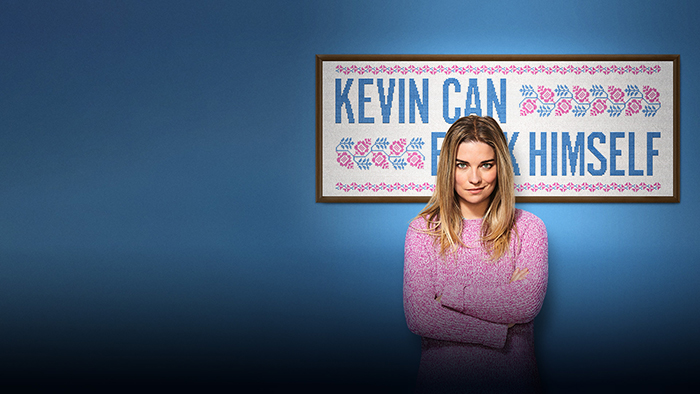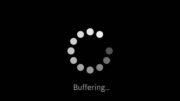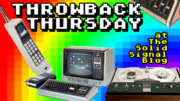This post includes references to profanity. Please enjoy our many other articles if you are offended by such language.
Who remembers a show called $#*! My Dad Says? It aired for the better part of a season in 2010-2011. The show was notable for two things. It was, if I recall, the first TV show based on a Twitter feed. Also, it was potentially the first show that even tried to put profanity in its title.
$#*! happens
I remember watching the show. While it wasn’t the best thing on TV at the time, it wasn’t the worst. It didn’t deserve to disappear so quickly. At the time of its cancellation, a lot of folks blamed poor ratings on the name of the show. Remember this was the height of the DVR era and being able to search for a show and record it was important. Yet many DVRs didn’t have a really good way to search for punctuation marks. The feeling was, if you couldn’t search for it, you couldn’t find it. And if you couldn’t find it, you couldn’t watch it.
A little bit about profanity on television
Broadcast television uses public airwaves. Part of a broadcasting license is an agreement to serve the public. From the very earliest days, this has included a mandate to limit programming and dialogue that is immoral or unsuited for children. Throughout most of the 20th century, this meant that network fare avoided dialogue that regular folks used every day. If the average person wouldn’t say it in front of a five year old or their grandmother, it didn’t belong on television.
There was profanity on television throughout the years, but it was unscripted. A 1981 Saturday Night Live sketch unexpectedly included the “F” word. While it was neither the first nor last time the show would use profanity, it was incredibly big news at the time.
The modern age of profanity on TV
The rules loosened a bit in 1997 when the FCC started requiring parental guidelines on television shows. While no one expected any “TV-MA” stuff on broadcast TV, the idea was that broadcasters could put some more mature stuff out there as long as they labeled it. It wasn’t long before broadcasters started pushing the envelope.
In 1999, Chicago Hope used the phrase “s… happens.” It is believed to be the first use of profanity in scripted TV in the US. It was in an appropriate context and while people were shocked, the show was not taken off the air. However the stunt didn’t really help the show’s ratings and created unnecessary controversy. To this day there is very little hard profanity on television.
In 2004, the Super Bowl halftime show, generally among the most viewed programming of the year, was interrupted by Janet Jackson’s exposed bosom. The FCC fined CBS close to $500,000 for indecency. Although the fine was eventually voided, the message was clear. That kind of stuff wasn’t going to fly.
Where we find ourselves now
When a little Canadian show about the Rose family found a home on the POP-TV cable network, few thought it would be a success. I’m not the only one who thought Schitt’s Creek would suffer because of it’s name. Yet, the show came to redefine our notions of comedy and family and became one of the most awarded programs in recent years. Slowly, though, the hesitancy and chuckles about the name dissipated. The show was so good it overcame that struggle and rode a tide of acceptance.
Which brings us to the current time. Perhaps you’ve heard of a new show on AMC called Kevin Can F… Himself. It’s an innovative show that relies heavily on the use of LUTs to create two atmospheres. At one moment, it’s a classic, brightly lit yuckfest about a goofy manchild, obviously patterned after Kevin Can Wait. Then, when the titular Kevin disappears, it becomes a modern, darkly lit dramedy.
The show is groundbreaking for its genre mixing, and it’s also the latest to stretch the envelope for profanity. The show smartly puts its profanity late in the title, making it easy to search for. And really there is no profanity there, just an F and three dots. But we all know what those dots mean. If it’s not clear, the show’s title sequence gives you the four letters one by one.
AMC won’t be fined by the FCC because they aren’t a broadcast network. They could put as much profanity in a title as they wanted, but they decided to go this way. Perhaps that’s so the show can get listed, reviewed, and discussed. So far the gamble’s paid off. We’ll have to see how it fares in the ratings.
What’s in store for the future
One thing we must always be aware of is that all language is evolving. Sometimes, it follows social norms. Certainly there was language on TV 50 years ago that would never be said today. And today we feel much more free to use words (and concepts) that were considered off-limits then.
When George Carlin was taken to court for his “Seven Words You Cannot Say On Television” (do your own Google searching, I won’t link to it) the world was a different place. Today we find ourselves with a pressing need to express the world we live in differently. I think we’re overall less afraid of profanity. And I do think eventually that real, hard four-letter-type words will find their way into show titles and blogs like this one. I’ll tell you that I won’t lead that charge, but I won’t be the one complaining about it either.





